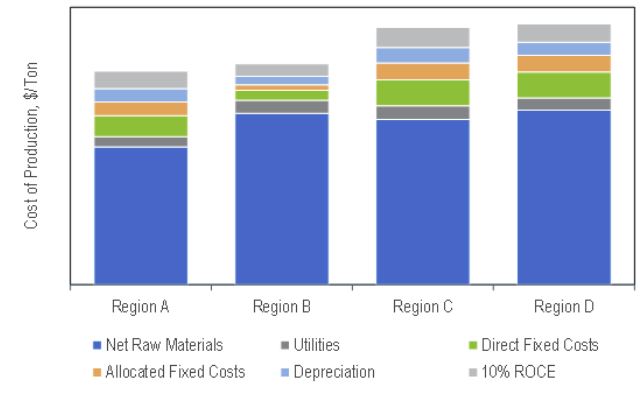Advances in depolymerization technologies for recycling
NexantECA, the Energy and Chemicals Advisory company publishes a new report on advances in depolymerization technologies for recycling
The reduction and reuse of post-consumer plastic waste is currently one of the key issues facing the plastics industry. Approximately 10 percent of the plastics produced worldwide are recycled, with the remaining ending up in landfills or incinerated.
For many years, plastics have been recycled using conventional (i.e., mechanical) methods. However, as the applications have become more demanding, conventional recycling is no longer enough, particularly because of the inconsistent quality of the mechanically recycled plastic. Advanced technologies such as depolymerization have attracted increased interest, as the recycled monomers can be used to manufacture plastics of the same quality as those produced from virgin materials.
NexantECA’s recently published TECH report, Advances in Depolymerization Technologies for Recycling, provides an updated overview of the technological, economic, and the state of the market of plastics that can be produced from waste depolymerization.
Depolymerization Technologies
Depolymerization breaks down the plastic waste into oligomers or monomers using techniques such as glycolysis, hydrolysis, methanolysis, or thermal pyrolysis, among others. The obtained monomers can be purified and repolymerized into a product with the same (or higher) value as the one that generated the waste.
This report examines the main commercial and developing processes for depolymerization of polyamide, polycarbonate, polyethylene terephthalate, polystyrene, polyurethane, and polymethyl methacrylate. Profiles of the main technology developers are also included.
Process Economics
Detailed cost estimates are presented to produce recycled monomers and corresponding plastics from waste material, at USGC, Western Europe, China, and Japan locations. Estimates are developed for all the six polymers covered in the study. Sensitivity analyses on feed pricing are also included.
Effect of Recycled Styrene Monomer Production Costs
Effect of Recycled Styrene Monomer Production Costs
Click here to download the Report Table of Contents
Find out more...
NexantECA’s Technoeconomics – Energy & Chemicals (TECH, formerly known as PERP) is globally recognized as the industry standard source of process evaluations of existing, new and emerging technologies to the chemical and energy industries. TECH’s comprehensive studies include detailed technology analyses, process economics, as well as commercial overviews and industry trends.
